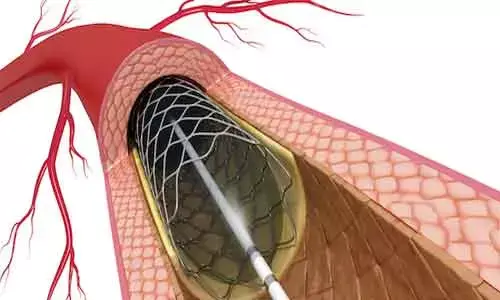- Home
- Medical news & Guidelines
- Anesthesiology
- Cardiology and CTVS
- Critical Care
- Dentistry
- Dermatology
- Diabetes and Endocrinology
- ENT
- Gastroenterology
- Medicine
- Nephrology
- Neurology
- Obstretics-Gynaecology
- Oncology
- Ophthalmology
- Orthopaedics
- Pediatrics-Neonatology
- Psychiatry
- Pulmonology
- Radiology
- Surgery
- Urology
- Laboratory Medicine
- Diet
- Nursing
- Paramedical
- Physiotherapy
- Health news
- Fact Check
- Bone Health Fact Check
- Brain Health Fact Check
- Cancer Related Fact Check
- Child Care Fact Check
- Dental and oral health fact check
- Diabetes and metabolic health fact check
- Diet and Nutrition Fact Check
- Eye and ENT Care Fact Check
- Fitness fact check
- Gut health fact check
- Heart health fact check
- Kidney health fact check
- Medical education fact check
- Men's health fact check
- Respiratory fact check
- Skin and hair care fact check
- Vaccine and Immunization fact check
- Women's health fact check
- AYUSH
- State News
- Andaman and Nicobar Islands
- Andhra Pradesh
- Arunachal Pradesh
- Assam
- Bihar
- Chandigarh
- Chattisgarh
- Dadra and Nagar Haveli
- Daman and Diu
- Delhi
- Goa
- Gujarat
- Haryana
- Himachal Pradesh
- Jammu & Kashmir
- Jharkhand
- Karnataka
- Kerala
- Ladakh
- Lakshadweep
- Madhya Pradesh
- Maharashtra
- Manipur
- Meghalaya
- Mizoram
- Nagaland
- Odisha
- Puducherry
- Punjab
- Rajasthan
- Sikkim
- Tamil Nadu
- Telangana
- Tripura
- Uttar Pradesh
- Uttrakhand
- West Bengal
- Medical Education
- Industry
PCI prior to TAVR may not reduce mortality or re-hospitalization: ACTIVATION trial

Delhi: Pre-procedure PCI versus no PCI in patients undergoing TAVR having significant coronary artery disease (CAD) did not result in better chances of survival or decrease in re-hospitalization risk, reveals findings from ACTIVATION Trial. The findings of the study were presented at the PCR Valves e-Course 2020 by Simon Redwood, from King's College London, England.
ACTIVATION is the first randomized trial of percutaneous coronary intervention (PCI) versus no PCI in patients with severe aortic stenosis and CAD undergoing transcatheter aortic valve replacement (TAVR). The trial found no difference in one-year mortality or rehospitalisation from PCI prior to TAVR.
The trial was conducted across 17 sites in the UK, Germany, and France. It enrolled patients having severe, symptomatic aortic stenosis as well as at least one proximal stenosis of > 70% in a major epicardial coronary artery, suitable for PCI. More than two thirds of patients had single-vessel disease and most of the rest had two-vessel CAD. It excluded patients with active bleeds, left main disease, a recent ACS, or class III-IV angina. Enrollment was done from late 2012 until January 2019 when pratice changes the facility -- total trial participation at 235 was shy of the 310 originally planned for the study.
Key findings of the study include:
· One year after TAVR, the primary endpoint of death/rehospitalization had occurred in 41.5% of the patients who underwent preprocedure PCI and in 44% of patients who did not.
· That event rate was similar, although the criteria for noninferiority was not met.
· A total of 16 deaths occurred in the PCI group compared with 14 in the no-PCI group.
· Rehospitalizations were 41 and 39, respectively.
· Bleeds, however, were higher in the PCI group: 44.5% versus 28.4%.
· The majority of that difference was in less severe bleeds with no significant difference in major bleeding. The difference in bleeds was likely due to the use of post-procedure dual antiplatelet therapy.
"Performing PCI prior to TAVR if a patient is found to have at least one significant coronary stenosis does not improve their chances of surviving or staying out of hospital over the next 12 months," concluded the authors.
The study, "The percutaneous coronary intervention prior to transcatheter aortic valve implantation (ACTIVATION) trial," was presented at the PCR Valves e-Course 2020.
Dr Kamal Kant Kohli-MBBS, DTCD- a chest specialist with more than 30 years of practice and a flair for writing clinical articles, Dr Kamal Kant Kohli joined Medical Dialogues as a Chief Editor of Medical News. Besides writing articles, as an editor, he proofreads and verifies all the medical content published on Medical Dialogues including those coming from journals, studies,medical conferences,guidelines etc. Email: drkohli@medicaldialogues.in. Contact no. 011-43720751


